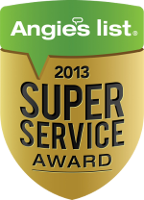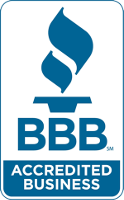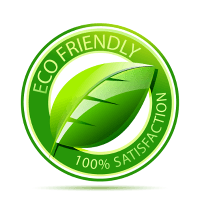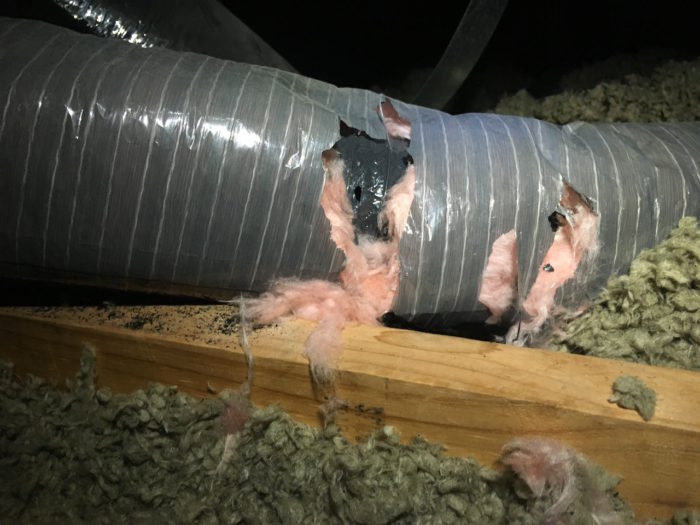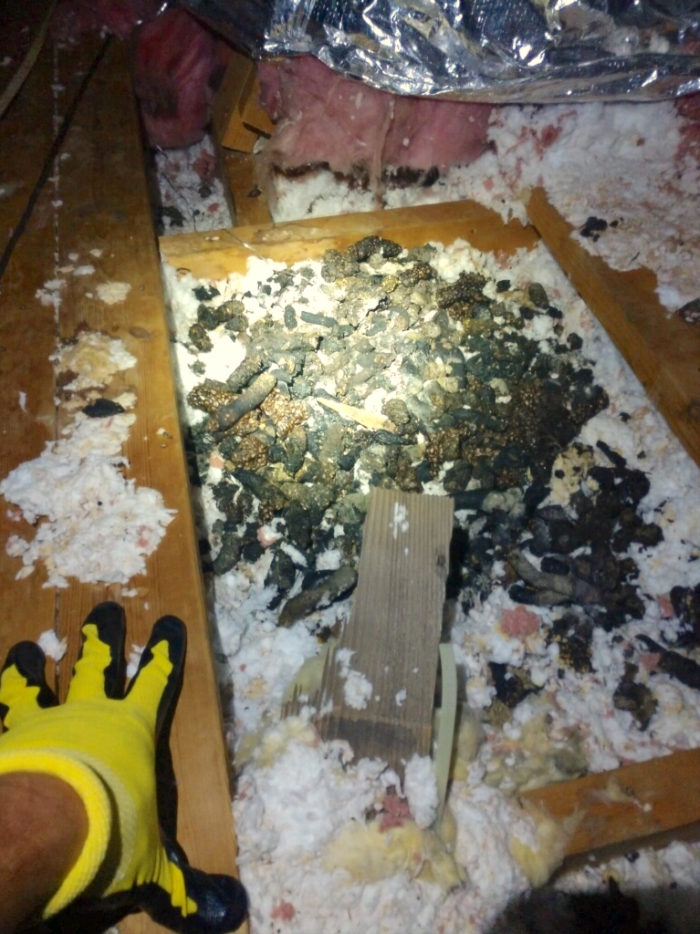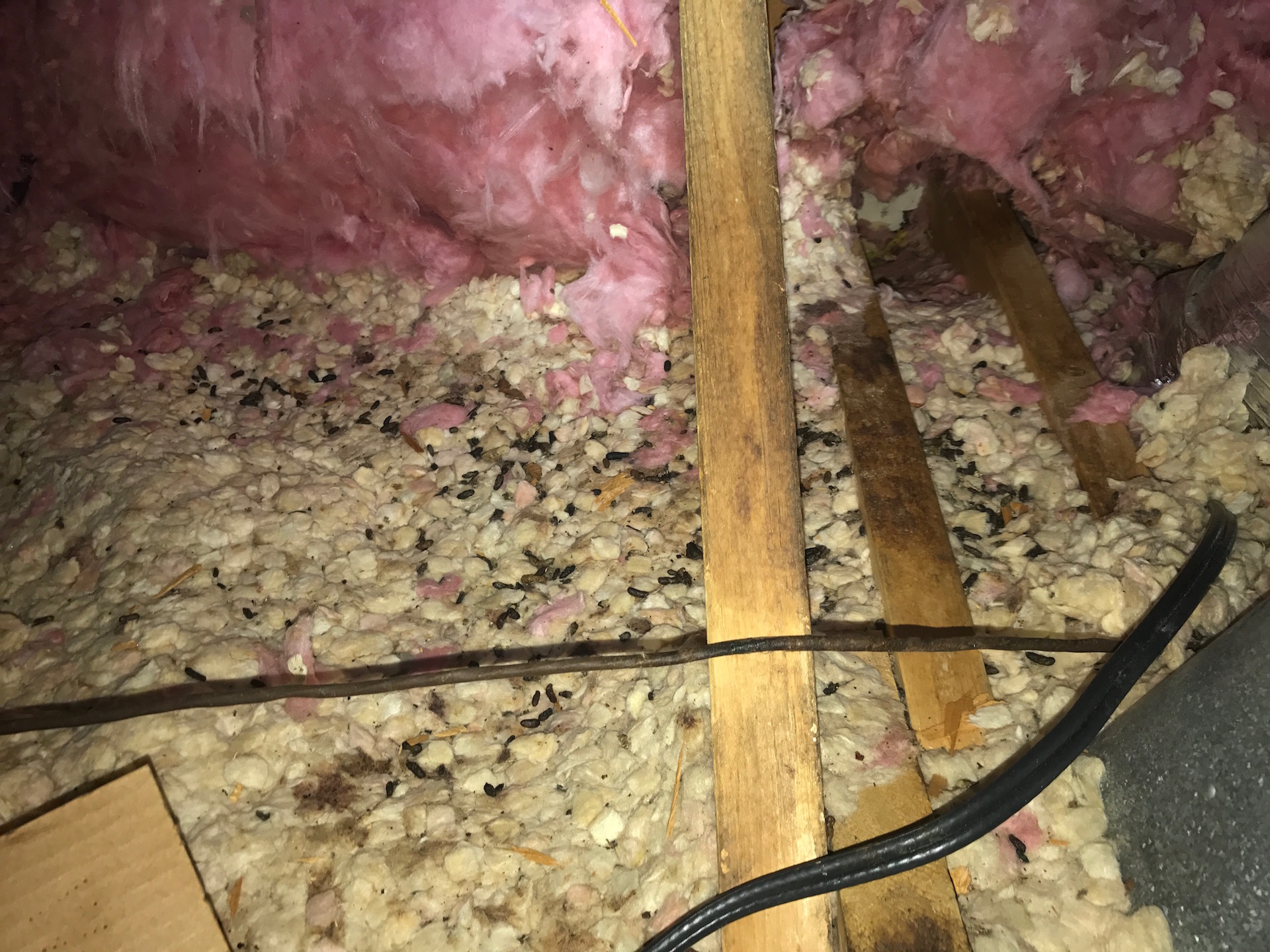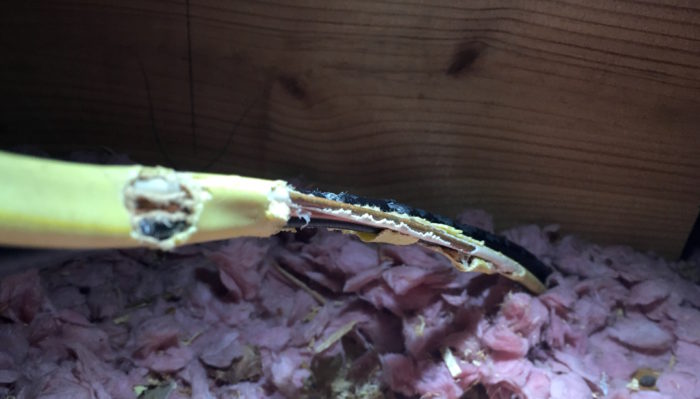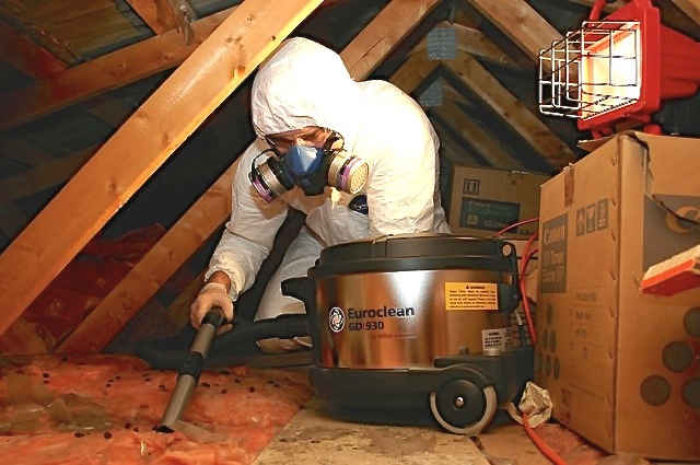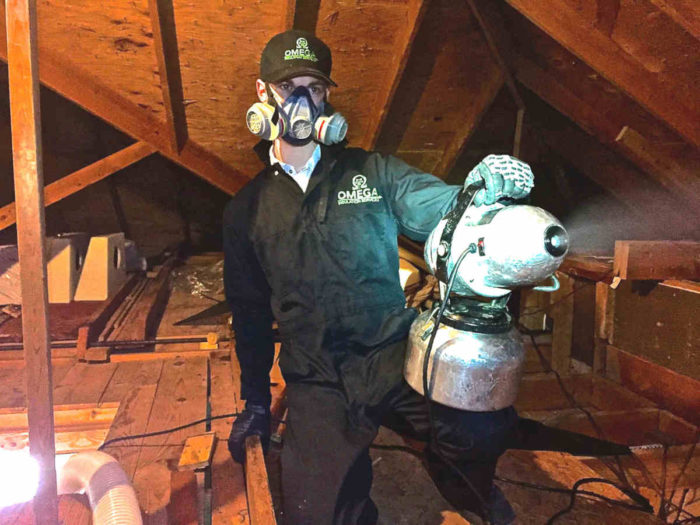ATTIC DECONTAMINATION SERVICES IN HOUSTON, TEXAS
The Rodent Control Experts ™
WHY IT IS IMPORTANT TO DECONTAMINATE YOUR HOUSTON ATTIC
When it comes to the hygiene, safety and livability of a space, investing in a properly sanitized attic is one of the most important things you can do to your Houston home. Cleaning and sanitizing the attic properly is a critical aspect of home maintenance, particularly when the air-conditioning ductwork has been damaged by animals.
Even when animals are removed by professionals, you are at risk for breathing in harmful bacteria and pathogens from the wastes left behind. To keep your Houston home or business safe and clean, you should take timely precautions and have feces and urine-soaked insulation removed by a professional Omega Animal Removal Rodent Control Specialist.
As a top-tier service provider and industry leader in attic decontamination and sanitization, Omega Animal Removal combines the skills and expertise of a trained and committed workforce with advanced technologies such as our state-of-the-art fogging system. We only work with the highest quality products and undertake rigorous procedures to ensure that the attic space of your home or business is thoroughly decontaminated.
Our service eliminates even the last traces of odors and pheromones and also gives you the peace of mind that your family, coworkers or employees are not exposed to harmful bacteria and fungal spores.
LET OMEGA ANIMAL REMOVAL DECONTAMINATE YOUR ATTIC
Our state-of-the-art fogging methods are guaranteed to remedy your attic of any biological traces of an animal infestation. Here’s what to expect:
Treatment 1:
The first treatment eliminates contaminants and pheromones using a potent anti-fungal, anti-bacterial and anti-microbial disinfectant. Administered over two phases, the fogging treatment permeates exposed spaces and insulation in the attic to neutralize particles that can cause serious health issues. The first phase of the treatment settles overnight and the second phase starts the next day. Your family can be home during the treatment, although it is recommended to keep away from the treated area for at least two hours after fogging.
Treatment 2:
Once the bacteria, microbes and airborne contaminants have been eliminated we administer a second treatment to rid the space of animal odors. We use an odor-eliminating sanitizer specially formulated for wildlife odors from urine, feces and pheromones. The first and second treatments deliver a powerful combination of decontaminating and sanitizing agents that removes disease-causing particles and odors, leaving you with clean and breathable air.
Treatment 3:
A third treatment is required if the infestation is severe enough. It’s designed to eradicate roaches, fleas and mites. The treatment kills current populations of these pests and also acts as a growth-inhibitor for the eggs that remain after the treatment. This treatment is not always necessary but is recommended if your Houston attic has been infested by rats or opossums since these animals often carry and spread fleas and mites.
WHY YOU SHOULD DECONTAMINATE YOUR ATTIC
A clean attic is imperative to maintaining your home’s value. Cleanliness alone should be a good enough reason, but here are a few reasons you should thoroughly decontaminate your attic after getting rid of animal inhabitants:
- Baylisascaris procyonis is a type of roundworm found in the feces of raccoons, which has been linked to several diseases including leptospirosis, rickettsia rickettsii, salmonella, giardia lamblia, and trypanosoma cruzi. Other than posing an extreme threat to humans the parasite is also extremely versatile. It can lay dormant in dried feces for an extended period of time and infect and cause diseases even years after an infestation has been removed.
- Histoplasmosis fungal spores can be found in the feces of bats and pigeons. A degraded air-conditioning system can release the spores into the air, which may lead to serious health complications, including chronic illness and even death, when breathed in.
- Feces from many small animals and rodents carry and spread many different types of harmful microbes that can easily become airborne. In particular, contact with feces from rats, mice, opossums, squirrels and skunks can lead to life-threatening illnesses such as salmonellosis and leptospirosis.

